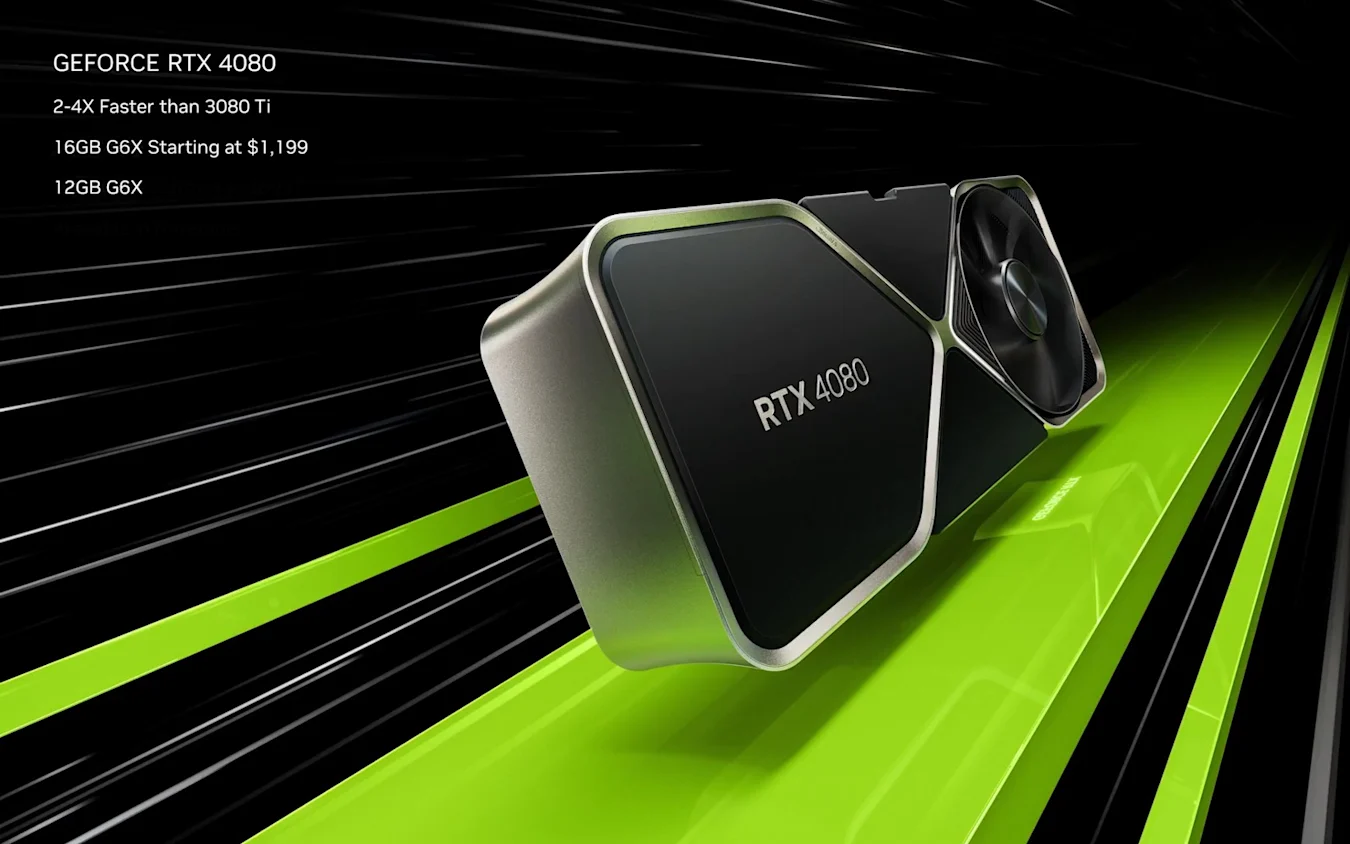
Following months of anticipation and controversy among its add-in board partners, NVIDIA’s 40 Series GPUs are finally here. The company unveiled the GeForce RTX 4090 and GeForce RTX 4080 today at its GTC 2022 keynote. Taking full advantage of its new “Ada Lovelace” architecture, NVIDIA says the two GPUs offer significantly better ray tracing performance. The company worked with Taiwan Semiconductor Manufacturing Company (TSMC) to co-develop a new “4N” fabrication process that NVIDIA says is up to two times more power efficient than the 8nm process it used for its 30 Series cards.
Ray tracing performance is significantly improved thanks to Ada Lovelace featuring NVIDIA’s new third-generation RT Cores, and the inclusion of a new rendering technique called Shader Execution Reordering and DLSS 3.0. In some games, NVIDIA said you can expect two to three times better ray tracing performance than what was possible with its Ampere GPUs. The company demoed Cyberpunk 2077 running at a near consistent 100 frames per second with all of the game’s ray tracing features set to max. NVIDIA said rasterization performance is up to two times faster thanks to the new architecture.
The first of NVIDIA’s new Ada Lovelace GPUs will arrive next month when the GeForce RTX 4090 goes on for sale for $1,599 on October 12th. With 24GB of GDDR6X memory, NVIDIA claims its latest flagship is two to four times faster than the 3090 Ti while consuming the same amount of power. Good thing too because it’s starting at $100 more than its predecessor. Inside of the RTX 4090, NVIDIA has managed to fit 16,384 CUDA Cores clocked at a base speed of 2.23GHz.
Alongside the 4090, NVIDIA will offer two different variants of the RTX 4080. The base model, starting at $899, features 12GB of GDDR6X memory, while the 16GB version will set you back a cool $1,199. Both configurations will arrive sometime in November. However, NVIDIA will only sell a Founders Edition model of the more expensive model. For the 12GB version, you’ll need to look to the company’s partners, which may make it hard to find models that actually start at $899.

In terms of performance, the 16GB 3080 features 9,728 Cuda Cores and a base clock of 2.21GHz, with a maximum boost clock of 2.51GHz. Meanwhile, the 12GB model features a more modest 7,680 CUDA Cores but 100MHz faster base and boost clocks. Thankfully, you probably won’t need to upgrade your power supply if you plan to upgrade from a 3070 or 3080, with NVIDIA recommending a 700-watt PSU for the 12GB variant and a 750-watt power supply for its more powerful sibling. However, should you decide to buy a new PSU, you’ll want to wait until more ATX 3.0 PSUs arrive later this year. That’s because at least the Founders Edition models will support the new PCIe Gen-5 16-pin connector standard. That said, NVIDIA will also include an 8-pin adapter for those who don’t want to rewire their system.
NVIDIA’s 40 Series GPUs arrive at a difficult time for the company. For much of the pandemic, it was impossible to buy the latest GeForce GPUs at MSRP due to demand from both gamers and crypto miners. That all changed in recent months due to the recent crypto crash and Ethereum’s much-anticipated switch to proof-of-stake minting. As a result of those events, the used market was flooded with 30 Series GPUs, making it nearly impossible for the company’s AIB partners and retailers to sell new video cards at MSRP.
Author: I. Bonifacic
Source: Engadget



